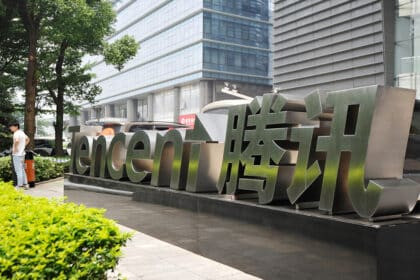Chinese tech giant Tencent is ‘shifting’ away from its VR hardware initiative to remain competitive on the metaverse front.
Tencent Holdings Ltd has scrapped plans to build virtual reality (VR) hardware amid a bleak economic outlook. According to reports, the Chinese multinational tech and entertainment conglomerate is looking to reduce costs and headcount at its metaverse unit.
Tencent previously had plans to create VR software and hardware at an “extended reality” XR unit launched last June. The company hired around 300 people to formulate strategies around a ring-like hand-held game controller. However, Tencent ran into a number of difficulties in its bid to achieve its objective. These difficulties included trying to achieve swift profitability as well as the required significant investment for a competitive product. Subsequently, inside sources said that Tencent opted to shift away from those strategies.
According to an internal forecast, Tencent’s XR project would not become profitable until 2027. However, it should be noted that the company’s XR unit formed during rising global interest in the emerging metaverse. As the world took notice of the concept of virtual worlds, Tencent carved out a rare foray into hardware for itself. The company is already widely known for its software prowess, which includes numerous games and social media applications.
Tencent in Competition with Western Rivals for VR/AR Hardware & Software Global Domination
As it stands, Tencent is in direct metaverse-focused competition with Western contemporaries such as Microsoft (NASDAQ: MSFT) and Meta Platforms (NASDAQ: META). Both companies are establishing their respective virtual ecosystems and also have their own VR hardware initiatives.
Earlier this year, the Chinese tech giant also planned to acquire gaming phone manufacturer Black Shark to consolidate its hardware push. However, the deal ultimately fell through due to Tencent’s strategy shift as well as other factors. These factors include an anticipated lengthy review process and intensifying regulatory scrutiny.
However, Tencent declined to shed further light on the failed Black Shark deal and actual debilitating factors. Instead, the Shenzhen-based tech powerhouse commented on the XR initiative, saying it was making adjustments to some business teams. In addition, Tencent also explained that the change in development plans for hardware called for such adjustments. Interestingly, the company added that it would not disband its XR unit.
Nio EV Partnership
Last year, Tencent weathered one of its most challenging phases since its inception in 1998. The company’s revenue took a hit from the local regulatory crackdown and Covid-induced headwinds. Tencent’s plight was underscored at its end-of-year meeting when founder Pony Ma censured senior execs for failing to pull their weight. At the time, Ma added that the Chinese tech multinational needed to prioritize short videos for future growth.
Late last year, Tencent also inked a partnership with Chinese electric vehicle automaker Nio (NYSE: NIO) to develop autonomous vehicles. Both companies view this collaboration as mutually beneficial as it leverages Beijing’s facilitation of self-driving, greener cars.
Last month, Tencent’s stock soared to multi-month highs amid easing regulatory pressure from authorities. Reports also stated that the company’s shares had doubled since its October price points.
 coinspeaker.com
coinspeaker.com
